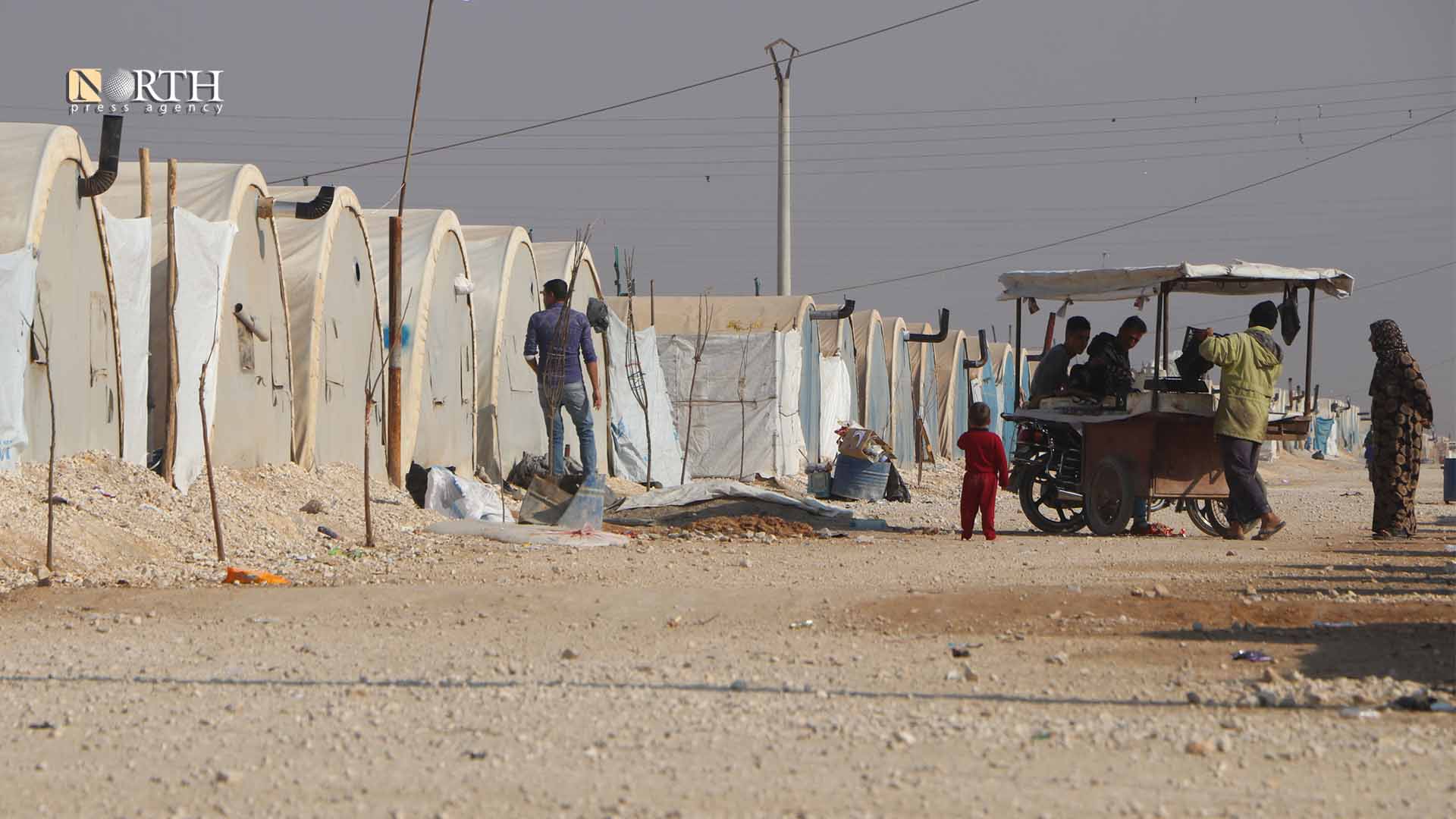HASAKAH, Syria (North Press) – Salma al-Hamad, 37, is an IDP woman from Sere Kaniye (Ras al-Ain) city, northeast Syria, is fixing her ragged tent with some nylon bags to limit the entry of cold wind and rain into the tent.
al-Hamad and her family of five live in Sere Kaniye Camp in the east of Hasakah city, northeast Syria.
IDPs in Sere Kaniye Camp complain winter supplies, including warming clothes, high-thermal blankets and beds, have yet to be distributed on them. Some of the IDPs are unable to afford them from the market since they are too expensive.
In 2019, Turkey and its allied Syrian armed opposition factions invaded the cities of Sere Kaniye and Tel Abyad displacing around 300,000 people.
Some of the IDPs sheltered in Washokani Camp, west of Hasakah, while others took schools of Hasakah city as accommodation. A part of the IDPs preferred to rent houses in the cities and towns of northeast Syria.
At the beginning of 2020, the Autonomous Administration established Sere Kaniye Camp and in September 2020, it announced it moved the IDPs who sheltered in schools to the new camp.
Currently, 2,200 families, including 11,642 individuals live in Sere Kaniye Camp.
No items to keep warm
Speaking to North Press while carrying one of her babies, al-Hamad said: “winter comes, we have got no items to keep us warm. No warming clothes for children.”
She added that they have recently received food assistance to sustain for only ten days. However, some of the people sold their shares to manage buying diesel to keep warm in winter.
Bashir Jemmo, 42, is another IDP and a breadwinner of a family of nine, two of them are disabled.
Jemmo found it difficult to buy diesel as one liter is sold for 650 SYP.
Sometimes he sells some food assistance he gets to buy diesel to keep his family warm.
Few promises
Aziza al-Khanafer, co-chair of the Sere Kaniye Camp management, told North Press that they have not distributed any winter preparations due to the lack of potentials.
The camp’s management received promises from many organizations in the region to deliver winter assistance to the IDPs by December, according to al-Khanafer.
“Only few organizations deliver aids but they do not meet the needs,” she added.
Given the drop in temperature, vulnerable IDPs in the camp fear distribution of winter relief items such as high-thermal blankets and beds to be delayed. All the items delivered to them two years ago have become ragged.

